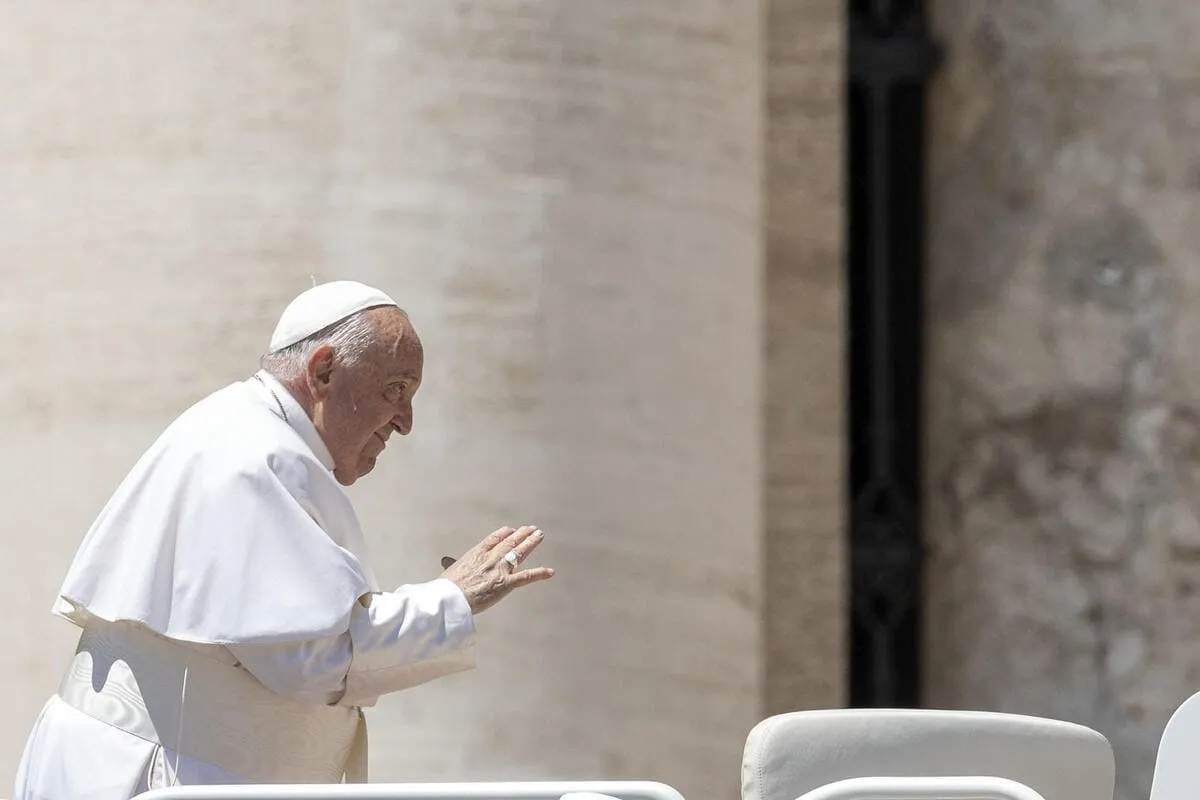
Dear Editor, the controversy sparked by the words of Pope Francis about “froccaggine” has struck me deeply. Not only because of the vulgar expression itself (those words, uttered by the mouth of a Pontiff, are disconcerting), but because amidst the flood of comments and jokes, there were very few that – seriously – attempted to address the issue of homosexuality in the seminary.
Chiara Santeri
Dear Chiara, I share your thoughts. The issue is very serious and concerns the formation of the clergy and, more generally, the position of the Church towards homosexuality (just think of what is happening in Germany).
The comment from the Holy See on the matter tells us two essential things: one, that the Pope apologizes and, two, that “there is room for everyone in the Church.” The incident should end here, as it is a matter reported from a private conversation. Many of the editorials appearing in the press these days (expressing astonishment at the Pope backtracking on certain “openings”) stem from a “political” interpretation of the papacy, the Church, its magisterium, but miss the point.
The point – setting aside the inexcusable language used by the Pontiff – is that Francis, like his predecessor Benedict XVI, is very concerned about the fact that in many dioceses, and especially in seminaries, homosexual communities have formed that protect and support each other. Benedict XVI spoke of “homosexual clubs in many seminaries” where pedophilia was justified, and in 2013 Francis explicitly mentioned a “gay lobby” within the Vatican. So, beyond the jokes, the first thing to consider is that the problem exists and the Pope is aware of it (which was the subject of the two-hour dialogue between the Pontiff and the bishops).
Secondly, access to seminaries by homosexual individuals should always be verified. While it cannot be ruled out that a homosexual person can become a priest, it is important to ascertain whether their condition does not compromise their vocation to celibacy and fatherhood, which in the case of deep-rooted homosexuality can easily be betrayed. This applies to heterosexual individuals as well, of course, but, as mentioned earlier, the seminary cannot be turned into a refuge to hide one’s sexual inclinations. It must return to its original purpose: to prepare priests.
From this perspective, Francis refers to what the tradition of the Church has always supported, as well explained in an Instruction published in 2005, which states that “the Church, while deeply respecting the individuals in question, cannot admit to the Seminary and to Sacred Orders those who practice homosexuality, present deeply rooted homosexual tendencies, or support the so-called gay culture. These individuals are in a situation that seriously hinders correct relationships with men and women. The negative consequences that can derive from the Ordination of people with deeply rooted homosexual tendencies should not be overlooked. If, however, the homosexual tendencies were only the expression of a transient problem, such as that of an adolescence that is not yet completed, they must still be clearly overcome at least three years before the diaconal Ordination.”
Thirdly, regarding the broader theme of homosexuality, Pope Benedict XVI, speaking of gay marriage in the introductory essay to the book Quale Europa, poses the issue in a radical way. As long as we continue to only focus on the consequences, preferences, love, desires, we will never get out of it: the proposed alternative cannot swing between licentiousness and castration. This may be how the world reasons, but not the Church, which in its proclamation must help everyone – especially the priests who are the first responsible for that proclamation – to ask the “fundamental question”, as Ratzinger called it: “Who is man? And with it also the question of whether there is a Creator or whether we are all just products of doing. […] Man also possesses a ‘nature’ that has been given to him, and violating it or denying it leads to self-destruction.”



